Find Help
More Items From Ergsy search
-

Sexually transmitted infections STIs
Relevance: 100%
-

NHS STI (Sexually Transmitted Infections) Information Video
Relevance: 69%
-

Can men in the UK transmit Zika virus if infected?
Relevance: 43%
-
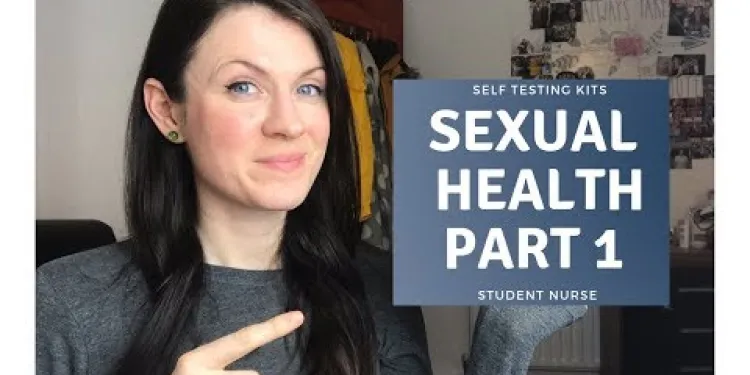
Let's Talk Sexual Health - Home Self Testing Kits
Relevance: 43%
-

Let's Talk Sexual Health - Home Self Testing Kits
Relevance: 42%
-

Understanding Your Sexual Health - Genital Warts
Relevance: 41%
-

The Different Roles in Sexual Health and Family Planning UK
Relevance: 41%
-

Understanding Your Sexual Health - Gonorrhoea
Relevance: 40%
-

Understanding Your Sexual Health - Pelvic Inflammatory Disease
Relevance: 40%
-
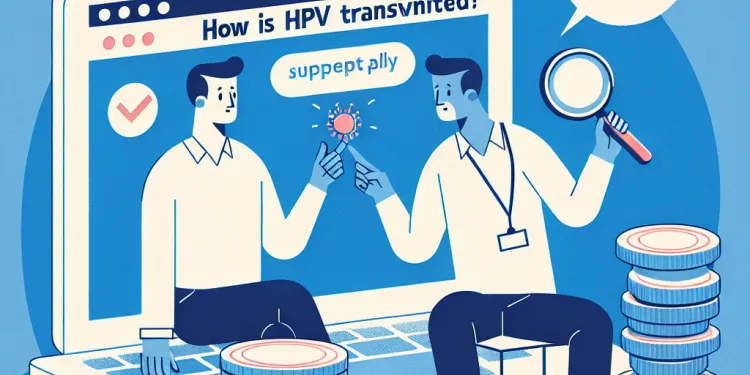
How is HPV transmitted?
Relevance: 38%
-

How is the Zika virus transmitted?
Relevance: 36%
-

How is gonorrhoea transmitted?
Relevance: 36%
-

How is HIV transmitted?
Relevance: 35%
-
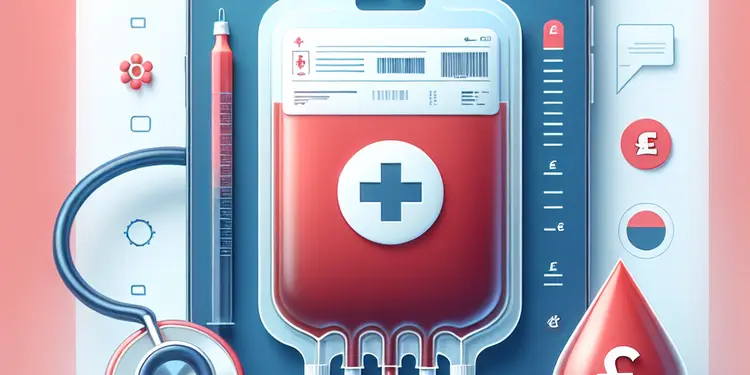
Can bacterial infections be transmitted through blood transfusion?
Relevance: 33%
-

Understanding Your Sexual Health - Herpes
Relevance: 32%
-

What should one do if they suspect they have gonorrhoea?
Relevance: 32%
-

Can gonorrhoea be prevented?
Relevance: 32%
-

Can using condoms fully protect against HPV?
Relevance: 31%
-

How is Chikungunya virus transmitted?
Relevance: 31%
-
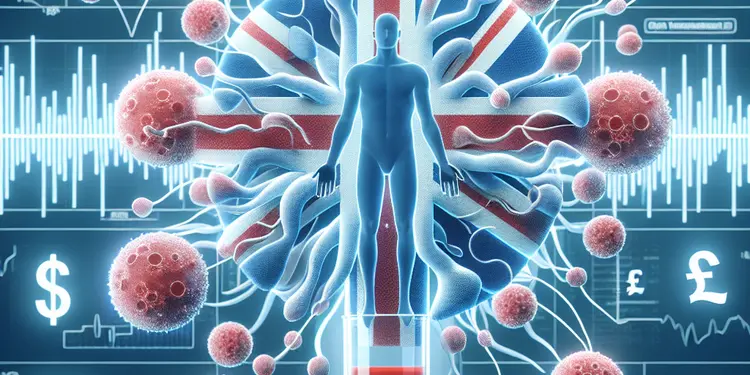
Can syphilis be transmitted via blood transfusion?
Relevance: 29%
-
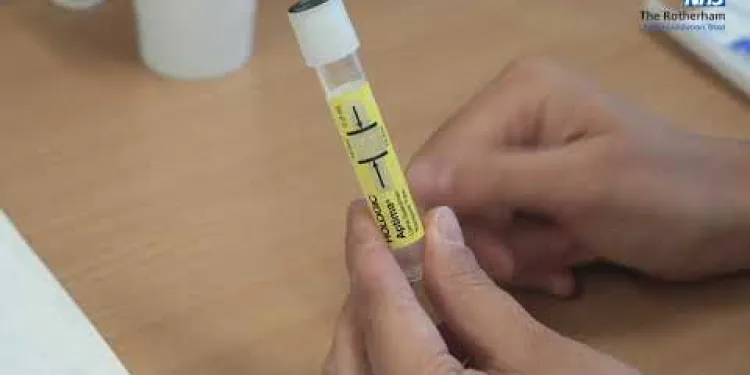
Urine test for Gonorrhoea and Chlamydia
Relevance: 29%
-

Can Chikungunya be transmitted from person to person?
Relevance: 29%
-
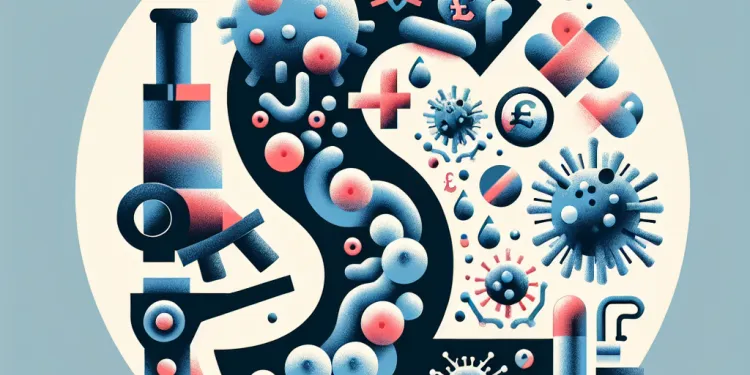
What is chlamydia?
Relevance: 28%
-

How is the Marburg virus transmitted?
Relevance: 28%
-

How is H3N2 transmitted?
Relevance: 28%
-
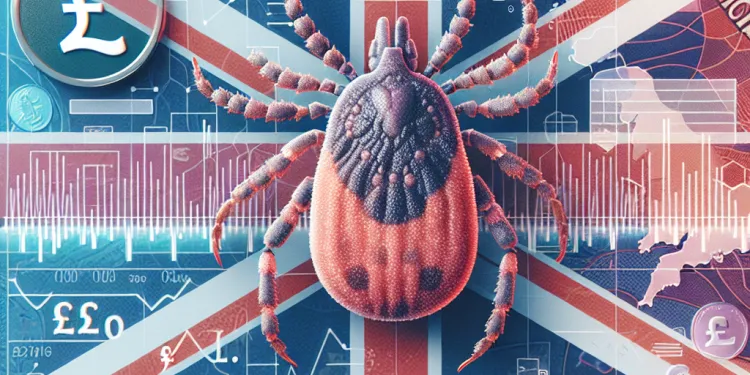
How is Lyme disease transmitted?
Relevance: 28%
-

Can gonorrhoea infect areas other than the genital organs?
Relevance: 28%
-
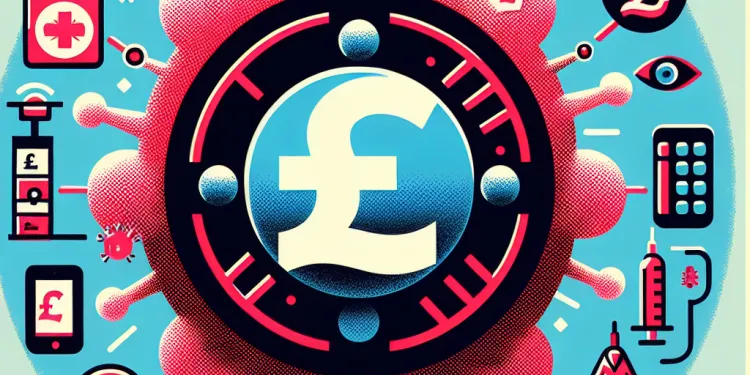
How is Rubella transmitted?
Relevance: 27%
-

How are cold sores transmitted?
Relevance: 27%
-

BSL Pelvic inflammatory disease (PID)
Relevance: 27%
-

How often should one get tested for gonorrhoea?
Relevance: 27%
-
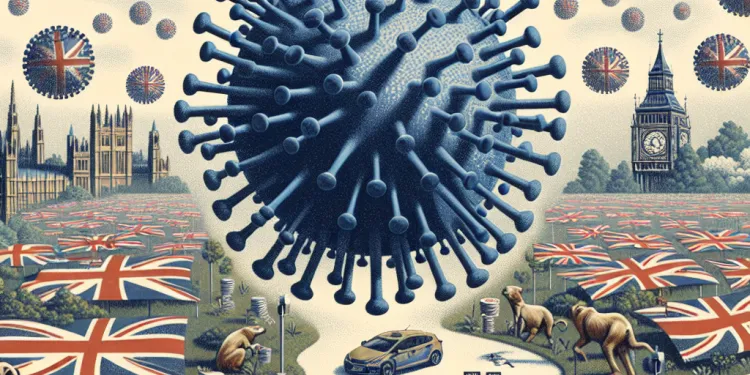
How is West Nile Virus transmitted?
Relevance: 26%
-

Are UK mosquitoes capable of transmitting Zika virus?
Relevance: 26%
-

How is the bubonic plague transmitted?
Relevance: 26%
-
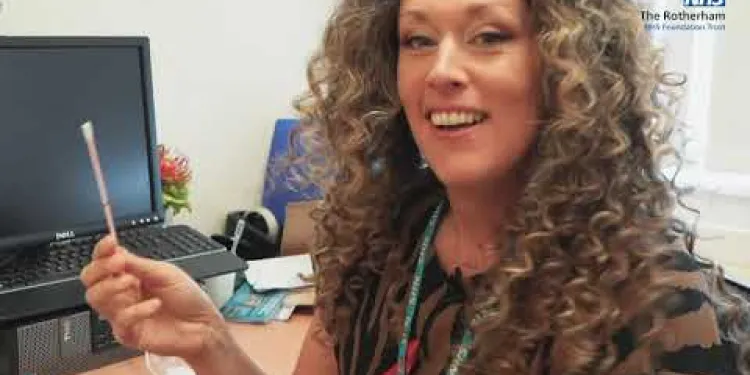
Pharyngeal swab for Gonorrhoea and Chlamydia
Relevance: 26%
-

How is Nipah Virus transmitted?
Relevance: 26%
-
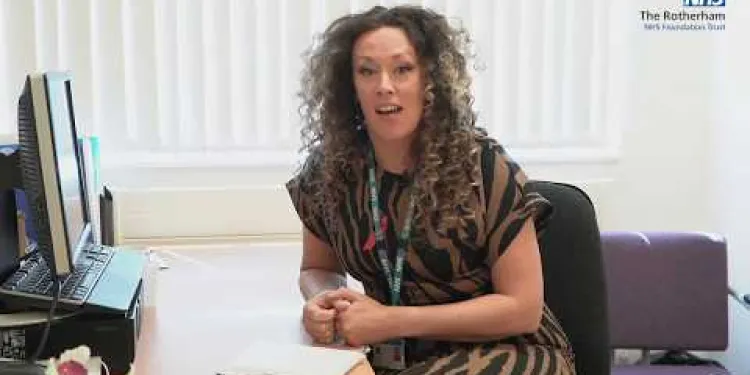
Vaginal Swab test for Gonorrhoea and Chlamydia
Relevance: 26%
-
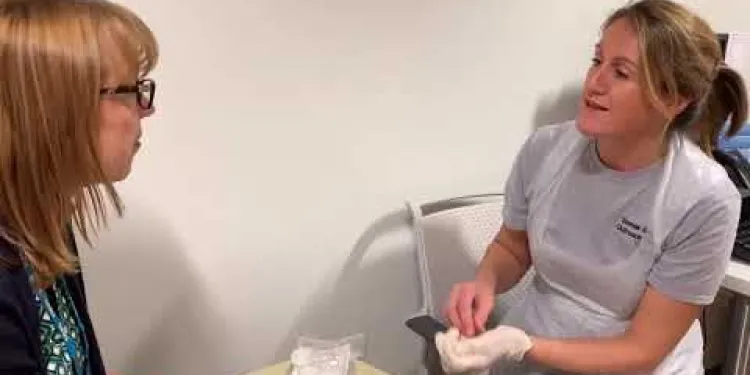
Sexual Health - HIV Testing
Relevance: 26%
-

How is measles transmitted?
Relevance: 26%
-
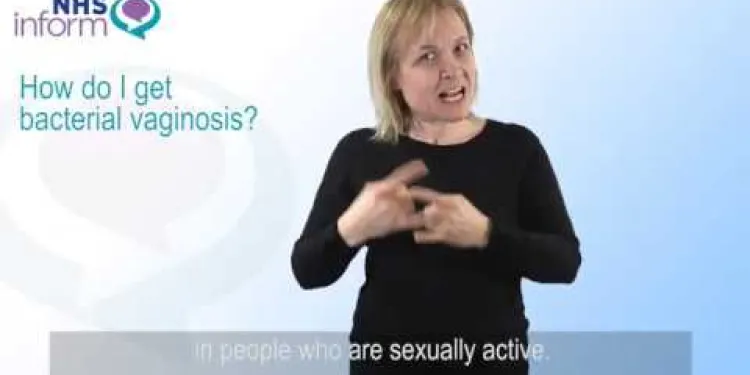
Bacterial vaginosis
Relevance: 26%
Understanding Sexually Transmitted Infections (STIs)
Sexually transmitted infections (STIs) are infections that are primarily spread through sexual contact. They are caused by bacteria, viruses, or parasites. This guide aims to provide a comprehensive overview of STIs, including their prevention and treatment, specifically for readers in the United Kingdom.
Common Types of STIs
Several STIs are prevalent in the UK, and understanding their nature is crucial for prevention and management. Common bacterial STIs include chlamydia, gonorrhea, and syphilis. Viral STIs include human immunodeficiency virus (HIV), human papillomavirus (HPV), and herpes simplex virus (HSV). Parasitic infections such as trichomoniasis also fall under the STI category.
Symptoms and Diagnosis
STI symptoms can vary significantly, and some people may not display any symptoms at all. Common symptoms include unusual discharge from the genitals, pain during urination, and sores or warts around the genital area. Regular screening and early diagnosis play a vital role in managing STIs effectively. The NHS provides various testing options, including confidential clinics and home testing kits.
Prevention and Safe Practices
Prevention is key to minimizing the risk of STIs. Using condoms consistently and correctly during sexual activities significantly reduces the risk of infection. Limiting the number of sexual partners and ensuring mutual monogamy with an uninfected partner can also lessen exposure. Vaccines are available for certain STIs, such as HPV and hepatitis B, and their uptake is encouraged.
Treatment and Management
Most bacterial STIs can be effectively treated with antibiotics, though it is essential to complete the course of medication as prescribed. Viral STIs may not be curable, but antiviral medications can help manage symptoms and reduce transmission risk. It is critical for individuals diagnosed with an STI to inform their sexual partners so they can also be tested and treated if necessary.
Support and Resources
The UK has numerous resources available for those seeking information or support regarding STIs. Websites such as the NHS and sexual health charities provide detailed guidance on testing, treatment options, and finding local sexual health clinics. Confidential helplines and counseling services are also available to offer advice and support.
Understanding Sexually Transmitted Infections (STIs)
Sexually Transmitted Infections, also known as STIs, are infections you can catch from sexual contact. They come from germs like bacteria, viruses, or tiny bugs called parasites. This guide will help you understand STIs, how to prevent them, and how to treat them, especially if you live in the UK.
Common Types of STIs
There are different STIs that people in the UK can get. It is important to know about them so you can stay safe. Some STIs are caused by bacteria. These include chlamydia, gonorrhea, and syphilis. Others are caused by viruses. These include HIV, HPV, and herpes. There is also a parasitic infection called trichomoniasis that is an STI.
Symptoms and Diagnosis
STIs can have different symptoms. Some people may not feel sick at all. Common signs include strange discharge from private parts, pain when peeing, and sores or bumps near private parts. It is important to get checked out by a doctor to know if you have an STI. The NHS offers different ways to get tested, like going to a clinic or using a home testing kit.
Prevention and Safe Practices
The best way to avoid STIs is to take care. Use condoms every time you have sex. Condoms help to stop STIs from spreading. Having fewer sex partners and being in a trusted relationship with one partner also helps. You can get vaccines to protect against some STIs, like HPV and hepatitis B. Getting these vaccines is a good idea.
Treatment and Management
If you have a bacterial STI, antibiotics can cure it. It is important to take all the medicine your doctor gives you. For viral STIs, medicines can help you feel better and stop you from passing it on to other people, but they may not cure it completely. If you find out you have an STI, tell your sex partners so they can get checked and treated too.
Support and Resources
If you need help or information about STIs, the UK has many places to assist you. Websites like the NHS and sexual health organizations offer lots of information. They can guide you on where to get tested or treated. You can also call confidential helplines and talk to someone about your concerns. They are there to help you.
Frequently Asked Questions
What are sexually transmitted infections (STIs)?
STIs are infections that are spread primarily through sexual contact. They can be caused by bacteria, viruses, or parasites, and common examples include chlamydia, gonorrhoea, and herpes.
How can I know if I have an STI?
The only way to definitively know if you have an STI is by getting tested. Some STIs have symptoms, but many people with an STI may not notice any symptoms at all.
Where can I get tested for STIs in the UK?
You can get tested at sexual health clinics, some GP surgeries, and private clinics in the UK. Many places offer free and confidential STI testing.
Are STI tests free in the UK?
Yes, STI tests are free through the NHS at sexual health clinics and some GP practices.
Can STIs be cured?
Some STIs, such as chlamydia and gonorrhoea, can be cured with antibiotics. Others, like herpes and HIV, cannot be cured but their symptoms can be managed with medication.
How can I prevent getting an STI?
The best way to prevent STIs is by using protection, such as condoms, during sexual activity and by having regular STI screenings if you're sexually active.
What are the symptoms of common STIs?
Symptoms vary by infection. Chlamydia and gonorrhoea might cause pain during urination or unusual discharge. Herpes can cause painful blisters or sores. HPV often has no symptoms but can lead to genital warts.
Can I get an STI from oral sex?
Yes, many STIs, including herpes and gonorrhoea, can be transmitted through oral sex.
How often should I get tested for STIs?
It's recommended to get tested regularly if you're sexually active, especially when you have a new partner or multiple partners. Yearly testing is often a good standard for many people.
Can STIs affect fertility?
Yes, untreated STIs like chlamydia and gonorrhoea can lead to infertility in both men and women.
What should I do if I test positive for an STI?
Follow the treatment plan provided by your healthcare provider, inform your sexual partner(s), and avoid sexual contact until the infection is fully treated.
Can I have an STI without showing any symptoms?
Yes, many STIs can be asymptomatic, meaning you might not have any noticeable symptoms but can still spread the infection.
Are there home testing kits for STIs in the UK?
Yes, home testing kits for some STIs are available in the UK, either from the NHS or online. These kits are typically used for common STIs like chlamydia and gonorrhoea.
Is HIV testing different from other STI tests?
Yes, HIV testing often requires a blood sample, whereas other STI tests might use urine or swabs. HIV testing can be done separately from regular STI screenings.
Can STIs be transmitted through non-sexual contact?
Most STIs are not transmitted through non-sexual contact. However, some, like HPV, can be spread through skin-to-skin contact, and others, like HIV, can be spread through sharing needles.
What are sexually transmitted infections (STIs)?
Sexually transmitted infections, or STIs, are illnesses you can get from being close with someone else when you have sex.
Here are ways to stay safe:
- Use a condom when having sex.
- Talk to your partner about staying safe.
- Get regular health check-ups.
STIs are germs you can catch when you have sex. They can come from tiny living things like bacteria, viruses, or parasites. Some common STIs are chlamydia, gonorrhea, and herpes.
How can I know if I have an STI?
Do you think you might have an STI? An STI is a sickness you can get from physical contact with another person. "STI" stands for "Sexually Transmitted Infection."
Here are some things you can do:
- See a doctor or nurse. They can help you know for sure.
- You can take a test. This is a simple way to find out.
- Ask a grown-up you trust for help. They can help you go to the doctor.
Remember, it is important to take care of yourself. If you feel worried, talk to someone who can help. You are not alone!
The only way to know for sure if you have an STI is to get a test. Some STIs can make you feel sick, but many times, people don’t notice anything is wrong.
Where can I get tested for STIs in the UK?
STIs are infections you can get from sex. It is important to get tested if you have one.
Here is where you can get tested:
- You can go to a sexual health clinic.
- You can visit a doctor's office (GP).
- Some places let you order a test online. You can do these tests at home.
If you are not sure where to go, you can ask a doctor or nurse for help. They can tell you the nearest place to get tested.
There are tools to help you find a clinic. You can use a website or call a phone line for information.
You can have a test at special health clinics for sexual health, some GP doctor's offices, and private clinics in the UK. A lot of places do tests for free and keep it secret.
Can you get free STI tests in the UK?
Yes, you can get free STI tests in the UK. An STI is an infection you get from another person. If you want to check if you have an STI, you can go to a clinic or doctor.
If you find it hard to read or understand, you can ask someone for help. You can also use tools like text-to-speech apps to read the information out loud.
Yes, you can get free STI tests from the NHS at places like sexual health clinics and some doctor’s offices.
Can you get better from STIs?
Some STIs can be cured with medicine from the doctor.
Some STIs cannot be cured but you can take medicine to feel better and stay healthy.
If you think you have an STI, go to a doctor or clinic. They can help you.
Using a condom can help stop you from getting STIs.
Some illnesses you can get from not being safe when having sex can be fixed with medicine. These are called chlamydia and gonorrhoea. You can feel better after taking medicine called antibiotics. Other illnesses, like herpes and HIV, can't be fixed forever, but you can take medicine to help you feel better and stop the symptoms from getting worse.
If you find reading hard, you can ask someone to read this with you. It's okay to ask for help!
How can I stop getting an STI?
Here are some ways to stay safe from STIs:
- Use condoms when you have sex. They help stop the spread of germs.
- Have fewer partners. This lowers the chance of getting an infection.
- Get tested regularly. Going to the doctor for tests helps catch any problems early.
- Talk to your partner about STIs. This helps you both stay safe and healthy.
If you need help, you can:
- Visit a doctor or nurse for advice.
- Use easy-to-read websites for more info.
- Ask someone you trust to help you understand.
The best way to stay safe from STIs is to use protection like condoms when you have sex. It also helps to get checked for STIs often if you are having sex.
What Signs Show You Might Have an STI?
STIs are infections you can get when you have sex. It is important to know their signs to get help. Here are some signs you might notice:
- Pain when you pee.
- Itchy or sore private parts.
- Bumps or sores on your skin.
- Different or smelly stuff from your private parts.
If you think you have these signs, tell a grown-up you trust or see a doctor. They can help you feel better.
Using pictures or talking with someone can also help you understand.
When people have these infections, they might feel different. For Chlamydia and gonorrhoea, it can hurt to pee, or there might be unusual stuff coming out. Herpes can give painful blisters or sores. HPV usually doesn't show signs, but it can make warts on private parts.
Can I get an STI from oral sex?
Oral sex means using the mouth on someone's private parts.
You can get an infection called an STI if you have oral sex. This can happen if one person has an infection.
To stay safe, use a condom or a dental dam. These are special covers that help stop infections.
It's good to talk to a doctor if you are worried or have questions.
Yes, you can get many types of infections, like herpes and gonorrhoea, from oral sex.
How often should I get tested for STIs?
STIs are infections you can get from sexual contact. It's important to get tested to stay healthy.
Here are some tips:
- If you have a new partner, get tested before having sex.
- If you have more than one partner, get tested regularly. This could be every 3 to 6 months.
- Talk to a doctor about what is right for you.
To help remember to get tested, you can:
- Set a reminder on your phone.
- Mark it on a calendar.
Remember, testing helps keep you and others safe.
If you have sex, it is a good idea to get tested often. This is very important if you have a new boyfriend or girlfriend, or if you have more than one partner. Many people find it helpful to get tested once a year.
Can STIs make it hard to have babies?
Yes, if you don't treat some STIs like chlamydia and gonorrhea, they can make it hard for men and women to have babies.
What should I do if I find out I have an STI?
1. Stay calm. It's important to know STIs can be treated.
2. Talk to a doctor. They will tell you what to do next.
3. Take any medicine the doctor gives you. This will help you get better.
4. Tell your partners. They need to get checked too.
5. Use a calendar or reminder app. This will help you remember doctor appointments and medicine times.
6. Ask someone you trust for help if you need to.
Listen to your doctor and follow their plan to get better. Tell your sexual partner(s) about the infection. Do not have sex until you are completely better.
Can I have an STI without any signs?
Yes, you can have an STI and not feel sick or see any signs. This means you might not know you have it.
It is important to see a doctor and get tested if you think you might have an STI.
You can use picture charts or simple apps to help you understand more about STIs.
Yes, some STIs (which are infections you can get from sex) don't show signs. This means you might feel okay but can still give the infection to others.
Can you test yourself for STIs at home in the UK?
You can get kits to test for STIs at home in the UK. These kits let you check if you have an infection without visiting a doctor or clinic.
When you use the kit, you might have to take a small amount of blood, pee, or swab from your body. Then, you send it to a lab in an envelope, and they tell you the results.
Some kits come with clear steps to help you do the test. If you need help, you can ask someone you trust or call a support line.
Yes, you can get test kits for some infections at home in the UK. You can get them from the NHS or online. These test kits check for common infections like chlamydia and gonorrhoea.
Is HIV testing different from other STI tests?
Getting tested for HIV is not the same as other STI tests.
With an HIV test, the doctor takes a small bit of your blood. They check it for HIV.
Other STI tests might use a swab, which collects things like spit or cells from your body.
It’s important to know which test you need. Ask a doctor or nurse if you are not sure. They can help you.
Remember, getting tested is a good way to stay healthy.
You can use pictures or videos to learn more about HIV tests. Ask someone you trust to explain if you need help.
Yes, to test for HIV, a doctor usually needs a little bit of your blood. Other tests for different infections might use pee or a cotton swab instead. You can get tested for HIV by itself, not just when you get other tests for infections.
Can you get STIs without having sex?
Some people worry about catching Sexually Transmitted Infections (STIs) without having sex. Here is what you need to know.
STIs from touching: You usually cannot get STIs from touching, hugging, or shaking hands.
STIs from sharing: It is unlikely to get STIs from sharing toilets or swimming pools.
Cut or sore: If you have a cut or sore, germs can get in. Be careful.
Ask a doctor: If you are unsure or worried, speak to a doctor or nurse.
Use simple tools like clear pictures and videos to learn more about STIs.
Most diseases from sex don't spread by touching. But some can. For example, HPV can spread when skin touches skin. HIV can spread if people share needles.
Useful Links
This website offers general information and is not a substitute for professional advice.
Always seek guidance from qualified professionals.
If you have any medical concerns or need urgent help, contact a healthcare professional or emergency services immediately.
- Ergsy carfully checks the information in the videos we provide here.
- Videos shown by Youtube after a video has completed, have NOT been reviewed by ERGSY.
- To view, click the arrow in centre of video.
- Most of the videos you find here will have subtitles and/or closed captions available.
- You may need to turn these on, and choose your preferred language.
- Go to the video you'd like to watch.
- If closed captions (CC) are available, settings will be visible on the bottom right of the video player.
- To turn on Captions, click settings .
- To turn off Captions, click settings again.
More Items From Ergsy search
-

Sexually transmitted infections STIs
Relevance: 100%
-

NHS STI (Sexually Transmitted Infections) Information Video
Relevance: 69%
-

Can men in the UK transmit Zika virus if infected?
Relevance: 43%
-

Let's Talk Sexual Health - Home Self Testing Kits
Relevance: 43%
-

Let's Talk Sexual Health - Home Self Testing Kits
Relevance: 42%
-

Understanding Your Sexual Health - Genital Warts
Relevance: 41%
-

The Different Roles in Sexual Health and Family Planning UK
Relevance: 41%
-

Understanding Your Sexual Health - Gonorrhoea
Relevance: 40%
-

Understanding Your Sexual Health - Pelvic Inflammatory Disease
Relevance: 40%
-

How is HPV transmitted?
Relevance: 38%
-

How is the Zika virus transmitted?
Relevance: 36%
-

How is gonorrhoea transmitted?
Relevance: 36%
-

How is HIV transmitted?
Relevance: 35%
-

Can bacterial infections be transmitted through blood transfusion?
Relevance: 33%
-

Understanding Your Sexual Health - Herpes
Relevance: 32%
-

What should one do if they suspect they have gonorrhoea?
Relevance: 32%
-

Can gonorrhoea be prevented?
Relevance: 32%
-

Can using condoms fully protect against HPV?
Relevance: 31%
-

How is Chikungunya virus transmitted?
Relevance: 31%
-

Can syphilis be transmitted via blood transfusion?
Relevance: 29%
-

Urine test for Gonorrhoea and Chlamydia
Relevance: 29%
-

Can Chikungunya be transmitted from person to person?
Relevance: 29%
-

What is chlamydia?
Relevance: 28%
-

How is the Marburg virus transmitted?
Relevance: 28%
-

How is H3N2 transmitted?
Relevance: 28%
-

How is Lyme disease transmitted?
Relevance: 28%
-

Can gonorrhoea infect areas other than the genital organs?
Relevance: 28%
-

How is Rubella transmitted?
Relevance: 27%
-

How are cold sores transmitted?
Relevance: 27%
-

BSL Pelvic inflammatory disease (PID)
Relevance: 27%
-

How often should one get tested for gonorrhoea?
Relevance: 27%
-

How is West Nile Virus transmitted?
Relevance: 26%
-

Are UK mosquitoes capable of transmitting Zika virus?
Relevance: 26%
-

How is the bubonic plague transmitted?
Relevance: 26%
-

Pharyngeal swab for Gonorrhoea and Chlamydia
Relevance: 26%
-

How is Nipah Virus transmitted?
Relevance: 26%
-

Vaginal Swab test for Gonorrhoea and Chlamydia
Relevance: 26%
-

Sexual Health - HIV Testing
Relevance: 26%
-

How is measles transmitted?
Relevance: 26%
-

Bacterial vaginosis
Relevance: 26%


